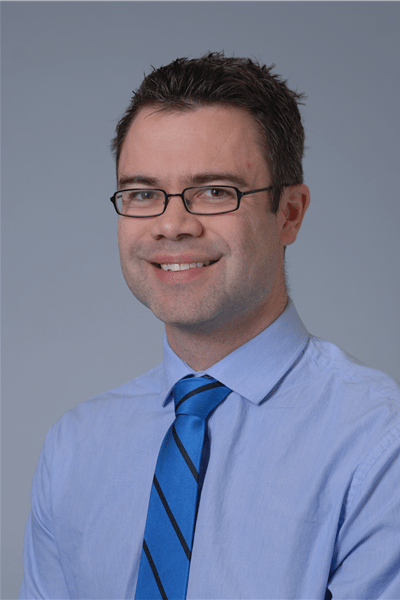
Kyle W. Jackson, MD, MPH
Assistant Professor of Clinical Pediatrics
- Phone
- (317) 278-3108
- Address
-
705 Riley Hospital Drive
ROC 4340
Indianapolis, IN 46202
Bio
Dr. Jackson is originally from Michigan where he completed his undergraduate degree at The University of Michigan where he also obtained his masters in public health in hospital and molecular epidemiology. He completed medical school at Wayne State University in Detroit before completing pediatrics residency at Northwestern University. He was an instructor of pediatrics at Northwestern for one year before beginning pediatric hematology/oncology fellowship at the Johns Hopkins/NIH combined program. During his time at the University of Michigan, he developed his interest in cancer research while studying adult stem cells and their relationship to cancer stem cells. His current research focuses on the influence of the microenvironment and extracellular matrix on Ewing sarcoma metastasis.
Key Publications
Dontu G. Abdallah WM. Foley JM. Jackson KW. Clarke MF. Kawamura MJ. Wicha MS. In vitro propagation and transcriptional profiling of human mammary stem/progenitor cells. Genes & Development, 17(10):1253-70, 2003 May 15.
Dontu G, Jackson KW, McNicholas E, Kawamura MJ, Abdallah WM, Wicha MS. Role of Notch signaling in cell-fate determination of human mammary stem/progenitor cells. Breast Cancer Res 2004, 6:R605-R615, 2004 August 16.
Liu S. Dontu G. Mantle ID. Patel S. Ahn NS. Jackson KW. Suri P. Wicha MS. Hedgehog signaling and Bmi-1 regulate self-renewal of normal and malignant human mammary stem cells. Cancer Research. 66(12):6063-71, 2006 Jun 15.
Ardanaz N, Jackson KW, Yang XP, Carretero OA, Pagano PJ. Lack of Glutathione Peroxidase-1 Accelerates Cardiac-Specific Hypertrophy and Dysfunction in Angiotensin II-Induced Hypertension: LB18. Hypertension. 48(4):e98, October 2006.
Goldstein SD, Hayashi M, Albert CM, Jackson KW, Loeb DM. An Orthotopic Xenograft Model with Survival Hindlimb Amputation Allows Investigation of the Effect of Tumor Microenvironment on Sarcoma Metastasis. Clin Exp Metastasis 32(7):703-715. 2015 October.
Hayashi M, Baker A, Goldstein SD, Albert CM, Jackson KW, McCarty G, Kahlert UD, Loeb DM. Inhibition of porcupine prolongs metastasis free survival in a mouse xenograft model of Ewing sarcoma. Oncotarget. ePub ahead of print, 2017 Jul 21
| Year | Degree | Institution |
|---|---|---|
| 2017 | Fellowship | John Hopkins University |
| 2012 | Residency | Northwestern Feinberg School of Medicine |
| 2009 | MD | Wayne State University |
| 2005 | MPH | University of Michigan |
| 2003 | BS | University of Michigan |
It is clear that effectively treating metastatic sarcoma disease is of paramount importance and one of the most significant challenges facing oncologists today. In attempt to address this challenge, I helped to developed a novel mouse model for studying sarcoma metastasis. This model has led to finding several biological differences within the tumor contingent on the microenvironment and will be utilized as the platform from which to study the microenvironmental influence on Ewing sarcoma cancer stem cells and metastasis. Specifically, the role that integrin/ECM binding play in metastatic potential and the development of distant disease.
Determining the role of the microenvironment in Ewing sarcoma metastasis.